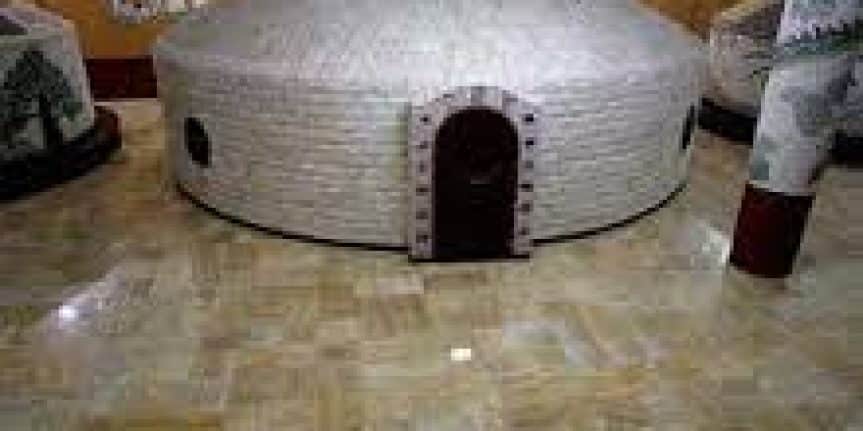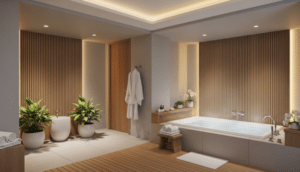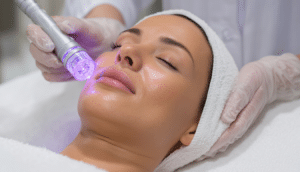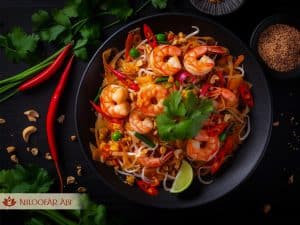Han Jeung Mak: The Ancient Korean Sauna for Deep Detox

Imagine a wellness ritual designed not for gentle relaxation, but for a profound “rebirth.” An experience so intense it’s famously known as the “oven steam bath.” This isn’t modern hyperbole; it’s the description of Han Jeung Mak, an ancient Korean sauna tradition.
In a world where we constantly seek new ways to cleanse our bodies and minds from daily stress, deep-rooted cultural traditions like the Han Jeung Mak offer a unique insight. If you’re looking to understand powerful, time-tested methods of purification, join us on a journey into the fiery heart of these healing kilns.
What is Han Jeung Mak? The Roots of a 1500-Year Tradition
The Han Jeung Mak dates back to 15th-century Korea. These distinct, dome-shaped structures, closely resembling traditional pottery kilns, were originally built for therapeutic and health purposes, primarily by Buddhist monks and the aristocracy.
The philosophy was based on a simple, powerful belief: exposing the body to sudden, intense heat forces a powerful reaction. This reaction—profuse sweating—was believed to expel toxins and sickness from the body. These structures, often built near mineral springs, were an integral part of traditional Korean medicine.
The Secret of the Kiln: Fire, Clay, and Far-Infrared Heat
Unlike a Finnish sauna (which heats the air) or a Turkish hammam (which focuses on steam), the Han Jeung Mak operates on the principle of radiant, or far-infrared, heat.
A Different Kind of Heat
The heart of a Han Jeung Mak is a stone hearth, traditionally super-heated by burning large amounts of pine wood, which is chosen for its ability to burn cleanly at extremely high temperatures. The kiln’s thick walls, often made of river stones and a special yellow clay called Hwangto, absorb and store this immense heat for hours.
The Ritual of Fire
After the fire reaches its peak—a process that can take many hours—it is extinguished, and the ashes are completely cleared out. What remains is a deep, penetrating warmth that radiates from the walls and floor, keeping the chamber intensely hot for hours or even days.
This radiant heat doesn’t just warm the air around you; it penetrates the body directly, warming tissues from the inside out. This is the core of its far-infrared detox capabilities.
The Experience: Enduring the Therapeutic Heat
Stepping into a traditional Han Jeung Mak is an experience unlike any modern sauna. The temperatures inside can be extreme. A New York Times report noted temperatures as high as 400°F (over 200°C) near the initial heat source.
For this reason, participants are given thick cotton robes and large blankets. These are used not only as a barrier against the intense heat but also to prevent direct contact with the scorching-hot surfaces of the floor and walls. To understand the intensity, it is said that if someone were to enter wearing synthetic fibers (like nylon), their clothes could melt or even ignite.
The Philosophy and Claimed Benefits of Han Jeung Mak
Why would anyone voluntarily endure such intense heat? The answer lies in the deep-seated belief in detoxification through sweat.
Lim Hyun-o, a traditional kiln specialist, mentioned in an interview with the New York Times that demand for these kilns is high: “We basically have no free time… Many of our clients, including some patients battling specific illnesses… book the kilns months in advance after consulting with their doctors.”
Proponents attribute a wide range of benefits to the experience, all rooted in the body’s reaction to the intense heat:
- Deep Detoxification: This is the primary belief. The profuse sweating is thought to help the body purge accumulated heavy metals and environmental toxins through the skin.
- Improved Circulation: The heat causes significant vasodilation (widening of blood vessels), dramatically increasing blood flow and oxygen delivery to tissues and organs.
- Muscle & Joint Pain Relief: The deep-penetrating far-infrared heat reaches muscles and joints, helping to release knots, reduce inflammation, and soothe chronic pain like arthritis.
- Skin Rejuvenation: The intense sweat flushes pores, clearing out excess sebum, dead cells, and impurities, often resulting in a clear, glowing complexion.
- Profound Stress Relief: Enduring the heat becomes a form of “forced meditation.” One must focus intently on breathing, clearing the mind of distracting thoughts. The feeling of lightness and deep calm after exiting is a primary reason for its popularity.
A Word of Caution: Who Should Avoid This Experience?
For all its benefits, the Han Jeung Mak is an extreme therapy and is not suitable for everyone. Personal health and responsibility are paramount.
The intense heat places significant stress on the cardiovascular system. Individuals with heart conditions, high or low blood pressure, or respiratory problems should strictly avoid this experience. It is also not recommended for pregnant women or anyone in a weakened state of health. The risk of dehydration is severe, making it critical to drink plenty of water before and after a session.
The Evolution: From Han Jeung Mak to the Modern Jjimjilbang
The traditional Korean sauna is undeniably a powerful cultural and therapeutic experience. In the modern world, this ancient custom has evolved into a milder, more social form known as the Jjimjilbang, or modern Korean public bathhouse.
These large, popular facilities offer multiple rooms with varying temperatures and materials (such as salt, clay, or charcoal rooms) instead of a single, intensely hot kiln. This evolution demonstrates that the human need for heat therapy and cleansing persists, but often in safer, more controlled formats.
In this same spirit, modern spa centers worldwide have drawn inspiration from these ancient traditions to provide safe, luxurious, and calming environments for the same goals. Premium Niloofarabi Spa Services are built on this same scientific and mindful use of water and heat for deep relaxation and improved health.
Finding Your Balance: Ancient Tradition, Modern Wellness
The Han Jeung Mak is a powerful reminder of humanity’s long-standing quest for health, purification, and balance. This ancient tradition shows just how deeply rooted heat therapy can be across cultures.
While the experience of a traditional Korean “oven” may not be accessible (or even desirable) for everyone, the benefits of deep relaxation and bodily care are a fundamental need. If you are seeking a professional, scientific, and safe path to restoring your energy and reducing stress, the Niloofarabi Massage Services offer a blend of world-class techniques in a tranquil environment.
At Niloofarabi, we believe wellness is not a luxury, but a necessity. We invite you to explore our services and find your own perfect balance of body and mind.




